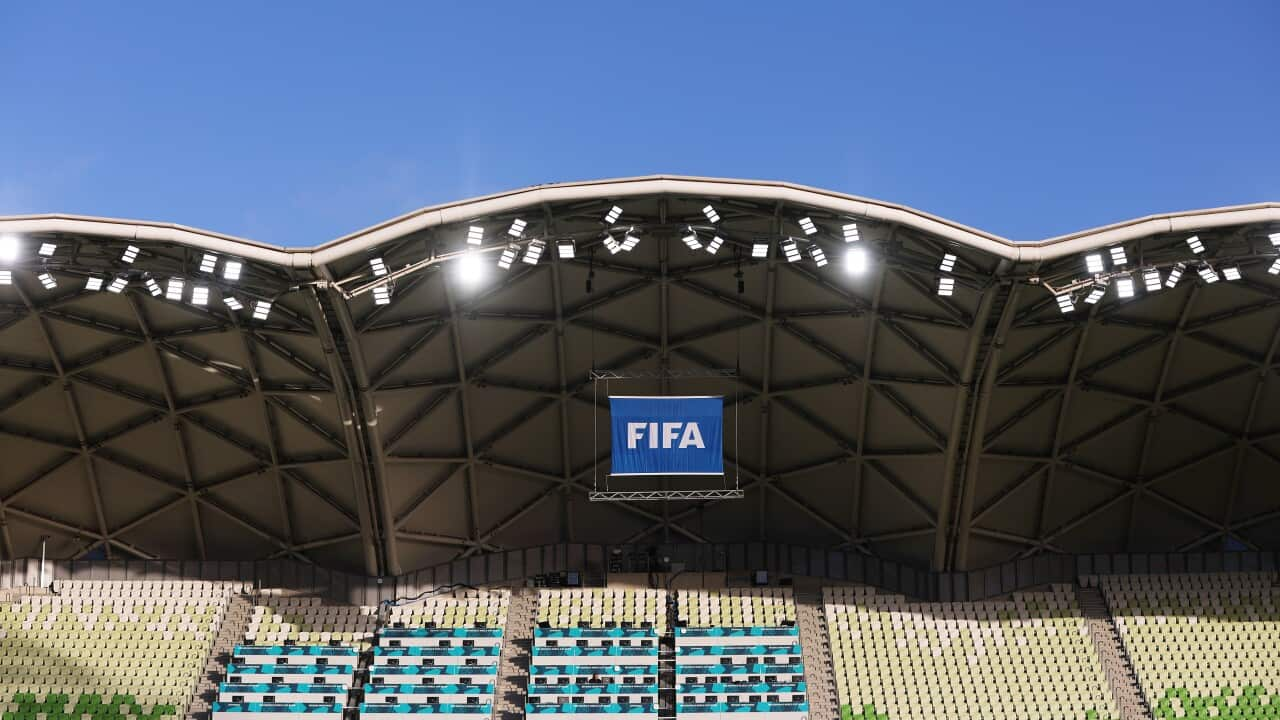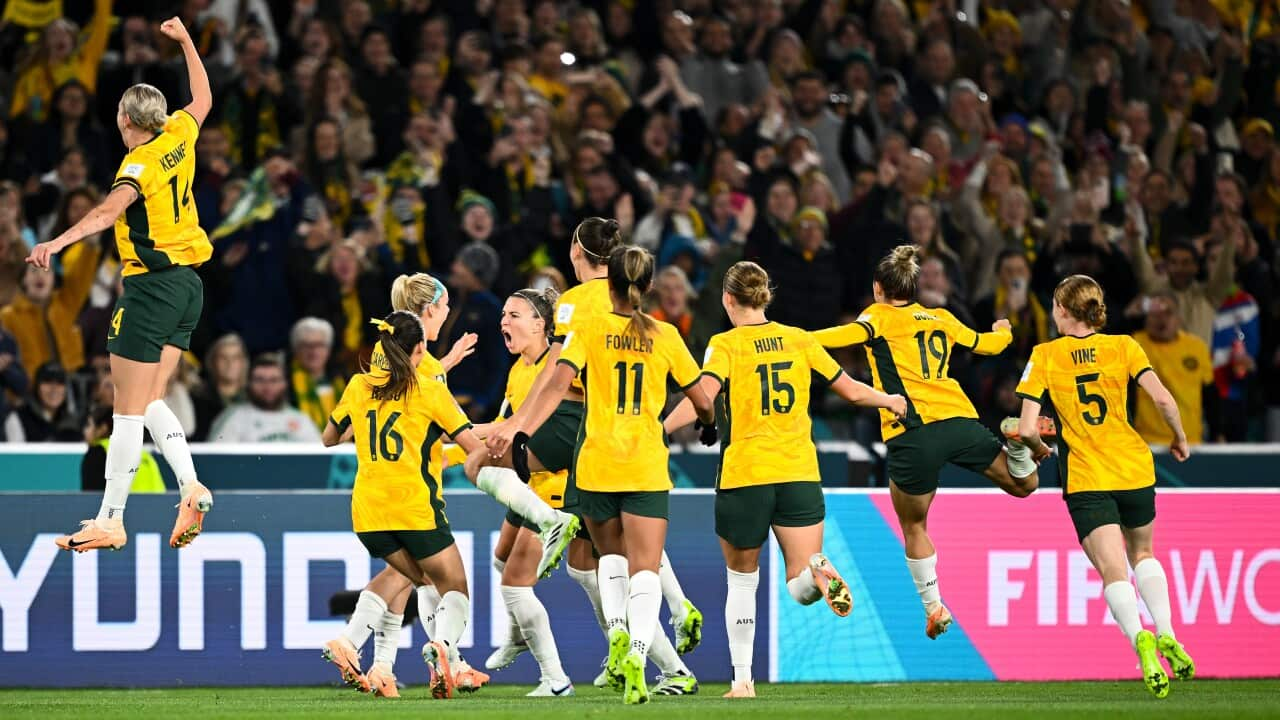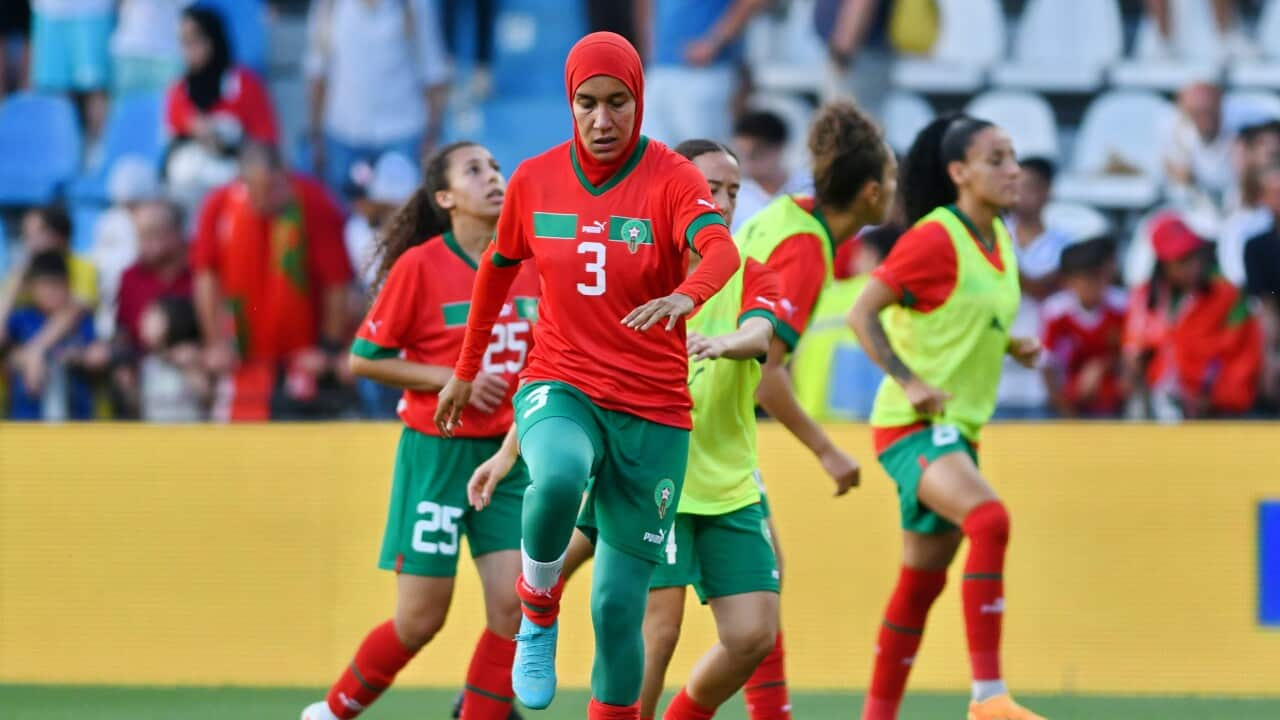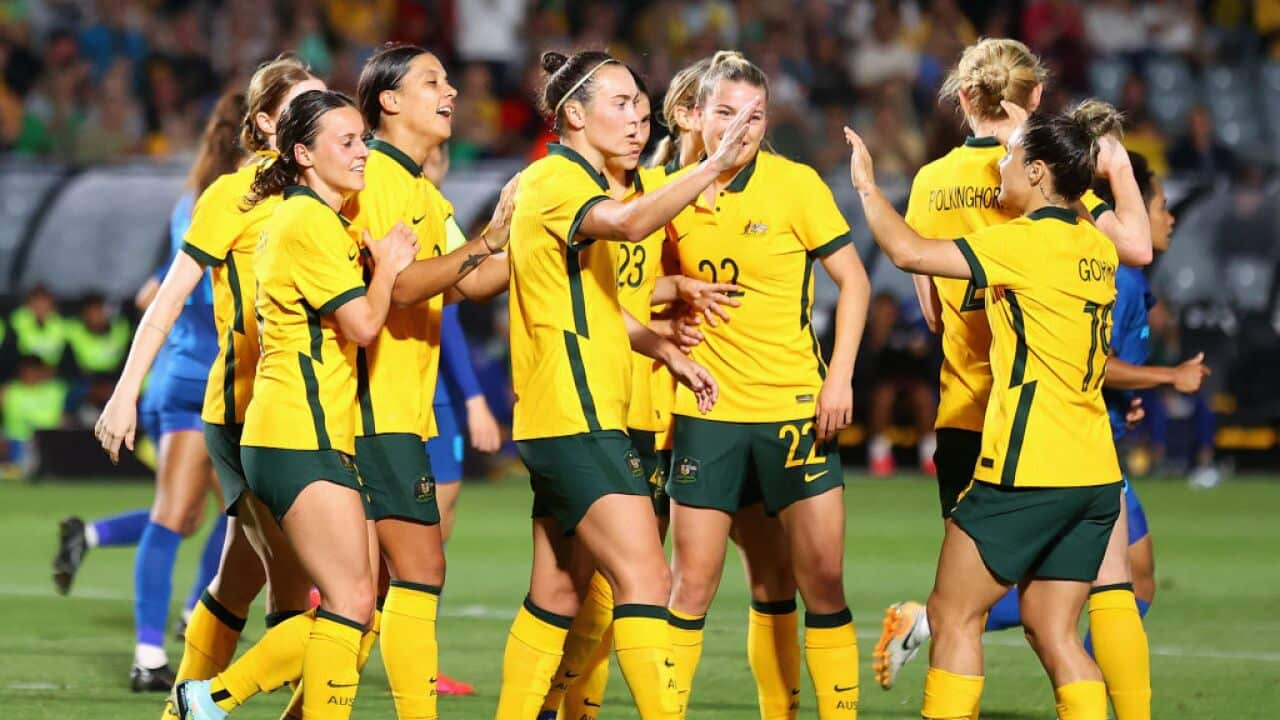Key Points
- Footage on social media of fans celebrating when Australia scored in the FIFA Women's World Cup has been taken down.
- In Australia, the Seven Network and Optus Sport have the broadcast rights to show the games.
- A social media strategist says copyright has failed to keep up with how people are using technology.
The game was played more than 3,000 kilometres away but that didn't dampen the elation of the crowd in Perth’s CBD watching the Matildas score their first goal at the 2023 FIFA Women’s World Cup last week.
A video of revellers watching that moment and celebrating the goal was posted to Twitter that night but social media users weren't able to see the momentous occasion.
Where the video should appear in the post, a message instead reads, "this video has been disabled in response to a report by the copyright owner."
The Matildas scored the only goal in their opening match against Ireland after a foul gave the Australian side a penalty.
Acting Matildas captain Steph Catley converted in front of a crowd of more than 75,000 people in Sydney in a game likely watched on television worldwide by millions.
The video shared in the tweet had been filmed at a free live broadcast of the game at the dedicated Perth FIFA Fan Festival.
Social media strategist Meg Coffey said the regulations that see such videos removed from social media don't necessarily match the way that the content is consumed.
"He put a video up of when the goal happens," she said.
“That is where we are as consumers today, we do video our lives and we do share on social."

Social media strategist Meg Coffey says copyright legislation has not kept up with technology. Source: Getty / Naomi Baker - FIFA
In another situation described in the Sydney Morning Herald, a video taken of that same moment from within Stadium Australia, and the crowd's reaction, was also taken down by Instagram.
During the 2018 FIFA World Cup in Russia, a five-second clip of a seven-year-old boy dancing in his living room after England scored against Tunisia was removed from Twitter due to copyright reasons.
A matter of copyright and broadcast rights
Coffey said organisations often wanted to control the narrative around their events and their brand.
“You almost can’t say the word Olympics when the Olympics are on because they want to be careful with the brand and who controls it," she said.
Coffey said his sort of thing happened quite often to individuals who may not be broadcasters but are technically "broadcasting" content.
"It all comes down to copyright and who has the broadcast rights, there could be any number of things, it could be that there's a song in the background and that song triggers a copyright infringement, or it could be the actual footage."
In Australia, the Seven Network and Optus Sport have the broadcast rights to show Women's World Cup games.
Copyright in the age of social media
Coffey said copyright in such situations had failed to keep up with how people were using technology.
She said certain settings and algorithms dictated by social media platforms in an effort to ensure protection of copyright likely automatically picked up such content, which would not always differentiate between fan footage and rogue broadcasters.
“Technology moves faster than the law and things just can't keep up. I do think that yes, we're at a time where the broadcast rules and regulations don't necessarily match the way that the content is consumed."
She said while she understood companies paid big amounts to have the right to broadcast these events, bodies such as FIFA may underestimate the potential for positive branding via organic fan posts.
Coffey said she wondered if in "some situations, they are they cutting their nose off to spite their face by saying we don't want our content shared?”
“There's a massive difference between broadcasting the entire game onto your Twitter feed, versus sharing the joy of the moment with 50,000 other fans."

Matildas star Steph Catley celebrates after scoring against Ireland in their opening Women's World Cup match in Sydney on Thursday night. Source: Getty / Bradley Kanaris
How strict is FIFA in terms of copyright?
The FIFA Women's World Cup website states, "there are several elements of our brand protection work that are aimed at identifying infringements of FIFA’s rights," and that it monitors the digital space, including social media for infringements.
FIFA is known for being protective of its brand, with sponsored stadiums being referred to in generic terms for the duration of its events, which explains why names such as AAMI Park are being swapped out, in that case for Melbourne Rectangular Stadium.
Intellectual property firm Forrester’s has described the sporting body’s full trade mark portfolio as “extensive” and covering “past and future editions of the World Cup.”
FIFA applies a range of terms and conditions to tickets for its tournaments, including a prohibition on, "live or near-live transmission, broadcast, streaming or other live or near-live dissemination of any audio, still or moving images, statistics or data relating to any match or competition-related event."




